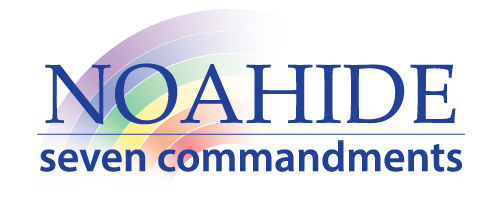IDOLATRY- 2/How to believe and know that God exist
© 2020 by Rabbi Zvi Aviner
Noahidesevencommandments.com
Genesis-and-seven-laws-of-noah.com
IDOLATRY- 2/How to believe and know that God exists?
Know the Creator, know yourself, and know the difference
1: A Mitzvah or an advice?
We learn about the mitzvah of the prohibition of IDOLATRY, the first two commandments of Moses that say
The first of the Ten Commandments
“I am your God who brought you out of the land of Egypt.”
……
The second of the Ten Commandments)
“You will no longer have God, on my face, etc., …” (Names 2:1)
We’ve talked about the Second Commandment of Sinai as a negative one that forbids the worshipping of idols.
We move on and we’ll discuss the positive aspect of that mitzvah, the other side of the coin, which tells us whom we should worship – the true God of Israel. .
.
What exactly is the First Commandment?
Some see it only as an “introduction” to the Ten Commandments. a As such, it doesn’t require from us to do anything.
Others, including Maimonides, counts it as the first of the Ten. As such. It does require us to do something. The question is: Do what?
Maimonides explains, In the Book of Commandments, that here the Speaker- G-d of Israel – Commands us to BELIEVE in Him or in His Existence.
That posture has been challenged by several philosophers, among them Karakash, Spain of the 16th century. He argues that it does not make sense to say that someone commands us to believe in his existence!
Others see it as a mere ADVISE. Believe in G-d for your welfare.
But Maimonides himself writes – in his book “The Strong Hand” – that here G-d Commands us to KNOW that He exists. For our welfare.
Moreover, it obliges us to do our best to get to KNOW him.
How? By studying Nature, and studying Torah.
And by studying His Names as they appear in the First Commandment
2: To Believe and to Know
So, in one place Maimonides writes that the Commandment here is to BELIEVE, whereas in another pace his writes “to KNOW” that G-d exists.
What’s the difference between “believing” and “knowing”?
For example- When a blind person enters a room saying: “I believe the table exists” – if means that he/she has some basic information that the table exists in the room, perhaps by having hears about it, yet the person is NOT yet absolutely sure. The person needs to take one more step, such as touching the table, to be really sure.
Now if the blind person says ‘I know that the table exists” – it expresses a higher level of assurance compared to “believing.” The person must have received information from highly reliable sources. And yet, the person is NOT yet absolutely sure. To be sure, he/she must touch the table.
.
To illustrate, Maimonides discuss the Exodus. The Israelites, he says, did not come to believe in G-d due to the miracles that He inflicted on Egypt. Every miracle, he says, may have a natural explanation. Even after the splitting of the Sea miracle, they believed in G-d and in Moses – for three day
But three days later when they had no more fresh waters, they complained bitterly. Their “believe” and faith in God had evaporated.
G-d then made for them another miracle, and their faith increased. Yet when they had no more bread their reverted back to their complains. Their ‘belief” evaporated.
G-d perform for them another miracle- the Mana- that increased their faith. But as Maimonides says, a belief is never equal to assurance. a few days later they wanted meat, and they complained again, their faith dwindling.
God brought them a greater miracle – meat, and their faith in him increased, yet on several other bad situations their complained.
It was only at Sinai, Maimonided says, that they encountered G-d directly. At that point their KNEW that G-d exists.
And we, their descendants, also KNOW of G-d existence by accepting the words of our parents. It is like the blind person in our example who enters the room “knowing” about the table existence, haven been told about it. The information has elevated his /her level of assurance from “faith” to ‘knowledge.” Yet the blind person is not yet absolutely sure, till he/she has touched the table.
At Sinai, Israel “faith” was elevated to “knowledge.” That is great, says Maimonides, yet not enough. The First Commandment of Sinai says that we should elevate ourselves from “believing” to “knowing” – than aspiring to “touch” so to speak G-d by (1) study Nature (2) study Torah. This combination would bring us closer to God as humanly possible.
To be sure that the table exists, I need to take further action on knowing that it exists. I must find him, touch him, whisper him, and then I will be sure– as much as possible to have a wi
.
3: To know him by his name
But there is another explanation for the First Commandment of Sinai, as a Command to KNOW G-d and address Him by the Names and Order He presents Himself.
On that we’ll speak next class.
